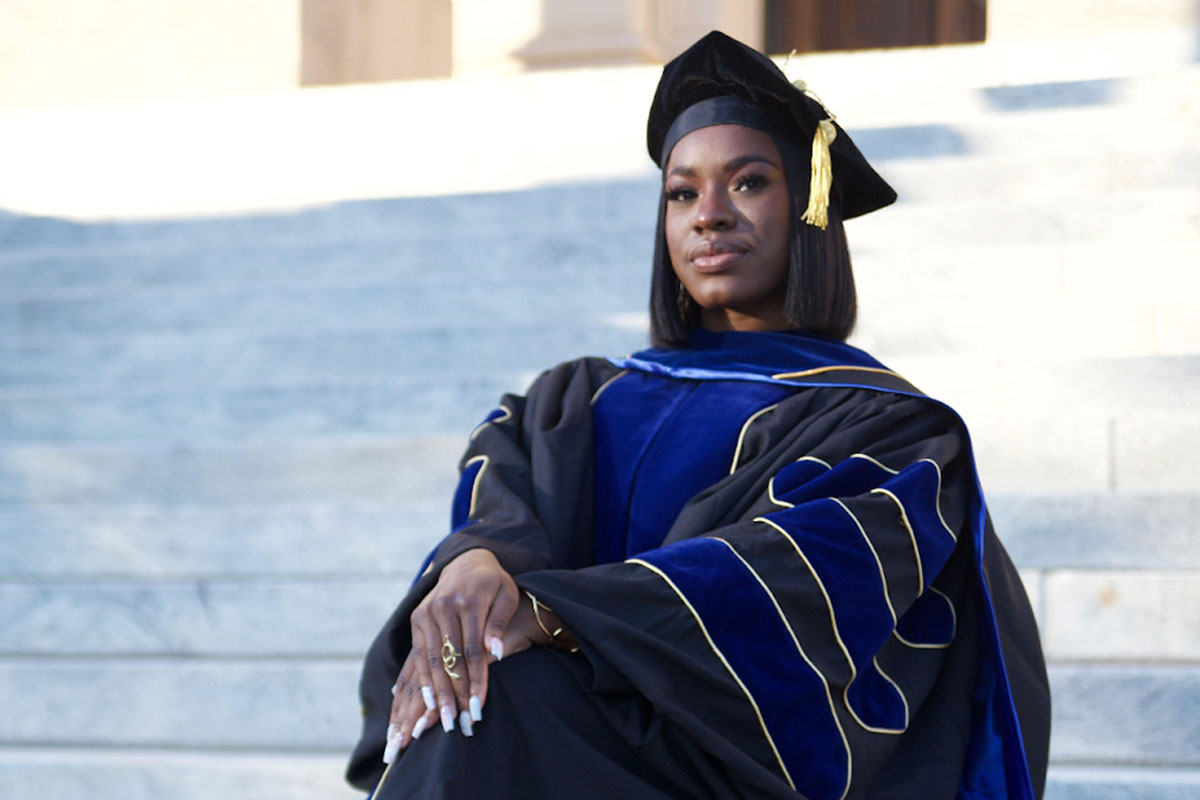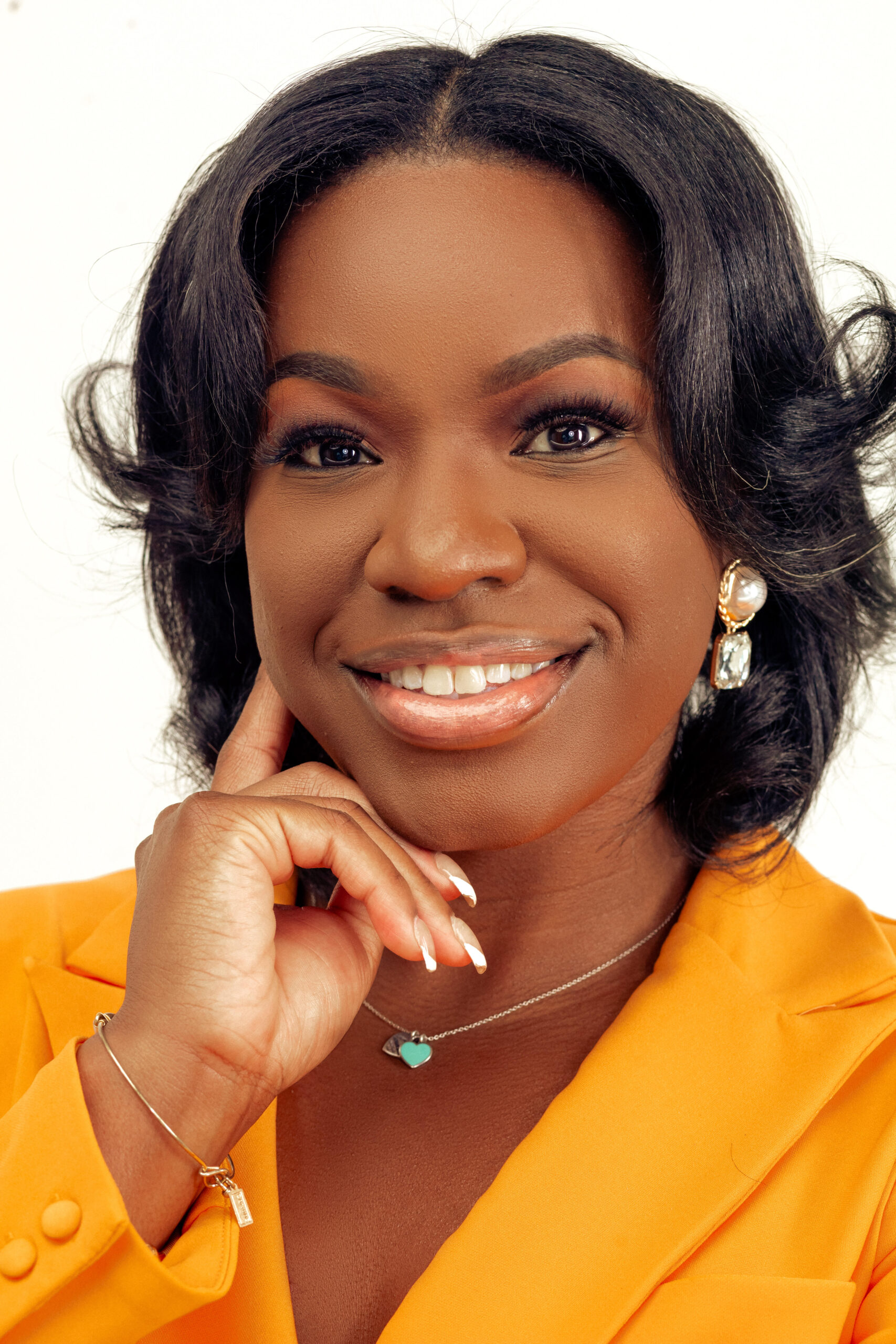It’s graduation season, and you’re front row on social media watching all the newly minted doctoral students share their journeys to defense, hooding and commencement. Maybe you feel intrigued or motivated, and now you want to get a Ph.D. Either way, welcome! Glad to have you.
If you’re thinking about a Ph.D. (doctorate of philosophy), congratulations! It takes a lot to wrap your mind around the idea of getting a terminal degree of any kind. The first step to achieving the goal is to make a conscious decision to seek it. Step one complete!
Now, I’m not an expert in all fields, but I know a little something-something about the Ph.D. journey having embarked on one myself in 2018. I wrote a list of tips that helped me navigate the process from acceptance to graduation. They may seem simple and small now, but they are what helped me transition from Arianna C. Stokes, M.Ed. to Arianna C. Stokes, Ph.D. (Purrrr.)
Believe In Yourself. I know this sounds simple, but when the going gets tough, and it will, that mustard-seed faith will be more than necessary. Write affirmations for yourself. Affirmations are considered to be an age-old proven booster of self-confidence and self-esteem. Being on a journey full of unfamiliarity and uncertainty can cause you to lose trust in yourself, and in those moments, you’ll need to reaffirm. Speak your goals out loud. Put the positivity into the atmosphere.
Journeying to the 2% is not for the weak. You need to program your mind to believe you can and that you will. Defeat that imposter syndrome. You belong.
Know Your Field. This is important. Don’t just apply to a program all “willy nilly.” You should be knowledgeable about how your intended or current industry works, the current issues, areas needing improvement and possible research topics. This is called preparation. Know the prominent researchers and studies in your field; they’ve laid the groundwork that scholars, including yourself, have echoed and will continue to echo for years to come.

You don’t have to be an expert, but be a student of the field. This will help you as you complete coursework and are prompted to produce real-world work samples. Knowing your field will lessen those feelings of anxiety and unpreparedness, and it may also help those around you take your pursuance of the degree more seriously. Seeking a Ph.D. indicates that you will become a scholar in your field at the end of the process, so I’m urging you to begin the process with a scholarly mind.
Read. Some of us love to read, others (like me), maybe not so much. Regardless of your preference, you have to crack open those books, read the articles, and do more than skim those 400-page reports. Ph.D. reading includes all types of publications, books, research articles, organization data, federal reports and theoretical and conceptual frameworks. Ph.D. reading is like no other; it’s a very detailed process that requires additional effort and a lot of organization.
Reading as a Ph.D. student is not simply glossing over the pages. Reading as a Ph.D. student requires you to read with a mind of inquiry, beyond comprehension and toward synthesization. It will help you to highlight similarities across studies and references, note common researchers, and pinpoint recurring themes. This process will help you in the future when it’s time to actually start writing and defending your work.
Organization is Next to Godliness. Create a system and stick to it. File research articles that you’ve read, organize artifacts by date or relevance, color-coordinate folders or binders with important work, data, or assignments, and don’t deviate from this system. While some people may be able to function in disarray, knowing where things are and having a system for maintaining information is helpful. It simplifies the communication process between adviser/chair and student, and helps you to familiarize yourself with content and evidence. It’s like you’re creating a massive study guide. If you’re like me, your “golden folder” may turn into a keepsake once you graduate or you’ll be able to share it with another aspiring doctoral student.
Read, Write, RETREAT. Getting a terminal degree can be difficult. The process can be taxing. There may be very few people who understand the demands and the process itself. Pursuing a Ph.D. may interfere with your social life, relationships, and professional endeavors. What you have to do is make a conscious decision to RETREAT. Spend time with yourself, take a break from the books and relax.
You’ll need time to recuperate and recharge—A LOT. Retreating can look like a work-free weekend, silencing email notifications, booking a vacation or staycation, or setting strong boundaries around when, where and how you study. Whatever you do, just make sure you spend time taking care of you.
Getting a Ph.D. is not a race. They didn’t stop conferring degrees after they made the first one. There is room for you. There is time for you. Trust the process. If necessary, I’ll be here. In the meantime, check out these resources for current and aspiring Ph.D. students:
The Research Her: The Research Her is a science podcast with the perfect amount of research and relatability. The podcast highlights Black women scientists and researchers while exploring research relevant to well-being.
Hooded: A Black Girl’s Guide to the Ph.D.: This book explores the unexamined experiences of Black women in higher education.
Academeology: This is a digital academic community housed in Instagram with content and experiences curated by Dr. Sarah Yercich.
This MFP Voices essay does not necessarily represent the views of the Mississippi Free Press, its staff or board members. To submit an opinion for the MFP Voices section, send up to 1,200 words and sources fact-checking the included information to azia@mississippifreepress.org. We welcome a wide variety of viewpoints.






